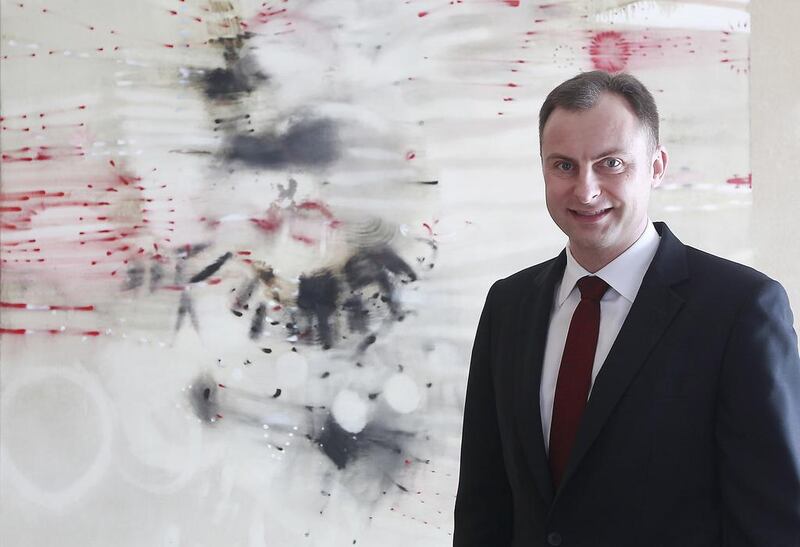Barclays’ private bank in the Middle East is on a roll, forecasting that the billions of dollars it manages for clients will show double-digit growth as a global rally of stocks, bonds and real estate this year increases the wealth in the hands of the super-rich.
The only thing that is holding back even further growth is the difficulty in hiring seasoned bankers, said the head of its wealth management business in the region.
While the private bank has the green light to increase existing headcount by more than double digits this year, its hiring has reached only single digits so far, said Cedric Lizin, the head of wealth and investment management for Barclays Middle East and North Africa.
Mr Lizin said that because Barclays focuses on high net worth individuals with at least US$5 million to park with them, it hires only bankers who are already directors or managing directors – the top end of the scale of titles in investment banking.
Few of these senior bankers are looking to jump ship given the nature of their long-term relationships with clients, he said.
“The importance of the Middle East business is increasing,” said Mr Lizin, who declined to give specific numbers about his business. “We did a strategy refresh a year ago and the Middle East was identified as one of the key growth areas, which was important. There’s a lot of wealth here and it’s growing and we felt our presence could be developed. The potential is definitely there. We have improved profitability of the business significantly. Growth in assets under management was single-digit but in the high single digits, percentage wise.”
In contrast, the British bank sold its retail operations in the UAE earlier this year to Abu Dhabi Islamic Bank amid a fiercely competitive environment for lenders.
In the Middle East and Africa, private wealth increased 11.6 per cent to US$5.2 trillion last year, according to Boston Consulting Group. That came amid a rebound in regional economies triggered by increased government spending on infrastructure projects and buoyant oil prices.
In Qatar, the richest nation on Earth per capita, almost 18 per cent of households have more than $1 million in investable assets – the threshold that gives you the honour of being called rich, according to BCG.
Globally, the rich controlled over $150tn by the end of 2013, a 15 per cent increase from the previous year, it said earlier this year.
In the past year, a number of private banks including Swissquote and La Cloche Wealth Management have set up in the Dubai International Financial Centre. Falcon Private Bank, a Swiss money manager owned by Abu Dhabi, is beefing up its capabilities locally while shutting offices in Hong Kong to focus on the super-rich in the Middle East, Africa and eastern Europe.
“When you look at the Middle East market, you have some outfits who are opening new wealth management offices or coming back,” said Mr Lizin. “You also have people who are going out of that market. Morgan Stanley sold their business, Merrill Lynch sold their business. There’s a bunch of competitors who do not see the Middle East market as a focus anymore. So there’s a bit of consolidation. The new entrants tend to be a bit smaller and in terms of competitive threat they are not always the people we would look at. You cannot compare their offerings to what we are doing. We have an offering that spans investments.”
While global stock indexes have rallied this year with the S&P500 gaining 7.3 per cent, Mr Lizin says in general Barclays is advising its clients to buy stocks over bonds as the global economic outlook improves and central banks prepare to raise interest rates.
mkassem@thenational.ae
Follow The National's Business section on Twitter





